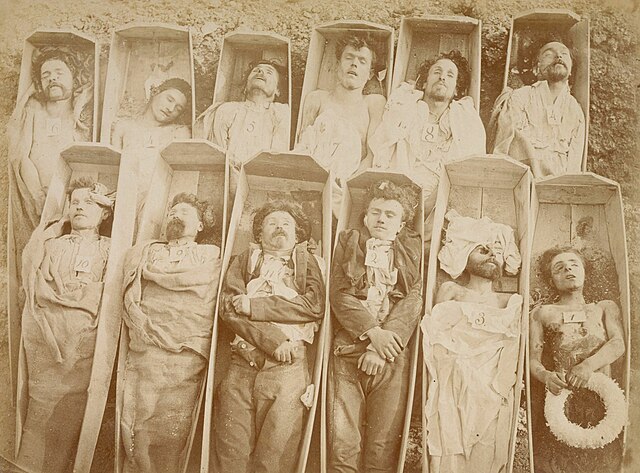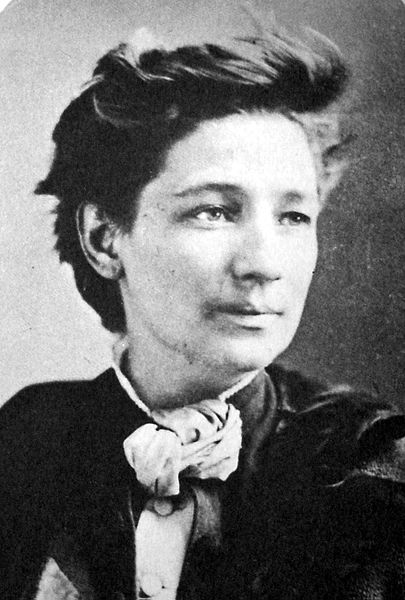International Workingmen's Association in America
The International Workingmen's Association (IWA) in the United States of America took the form of a loose network of about 35 frequently discordant local "sections," each professing allegiance to the London-based IWA, commonly known as the "First International." These sections were divided geographically and by the language spoken by their members, frequently new immigrants to America, including those who spoke German, French, Czech, as well as Irish and "American" English-language groups.
Abolitionist Wendell Phillips was an early supporter of the IWA and the Paris Commune of 1871, an event which boosted that organization in America.
Friedrich Sorge (1828-1906), a friend and correspondent of Karl Marx, was the leading figure in Section No. 1 of New York, IWA.
The defeat of the Paris Commune in May 1871 was followed by harsh reprisals against the defeated revolutionaries.
Victoria Woodhull (1838-1927) - Spiritualist, feminist, stockbroker, reform advocate, leader of Section 12, and 1872 candidate for President of the United States.
William H. Sylvis (1828–1869) was a pioneer American trade union leader who founded the Iron Molders' International Union. He also was a founder of the National Labor Union. It was one of the first American union federations attempting to unite workers of various crafts into a single national organization.
William Sylvis (1828-1869), American labor leader.
Historical marker dedicated to William H. Sylvis






